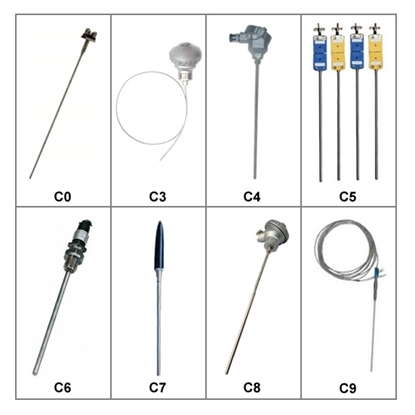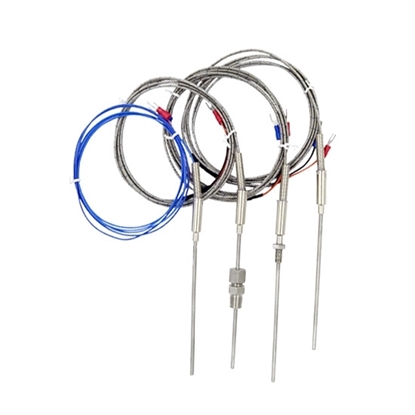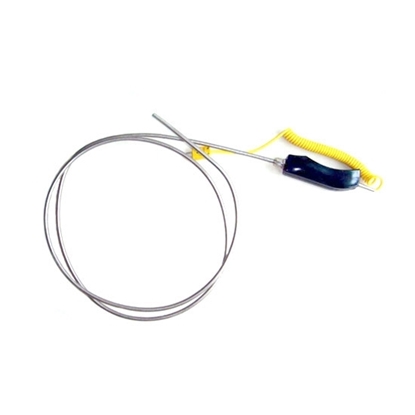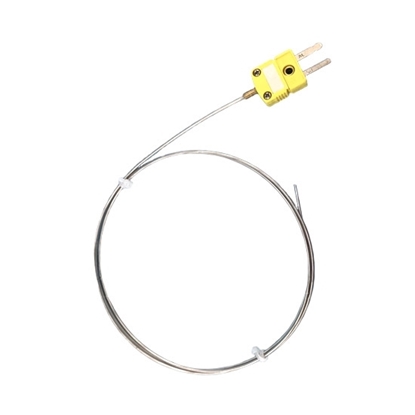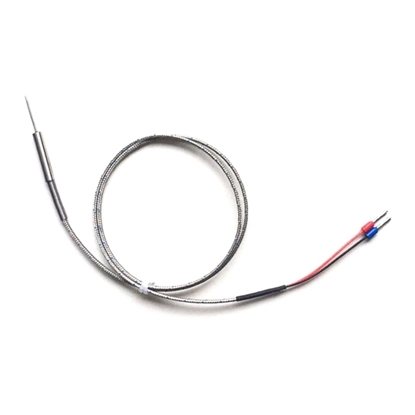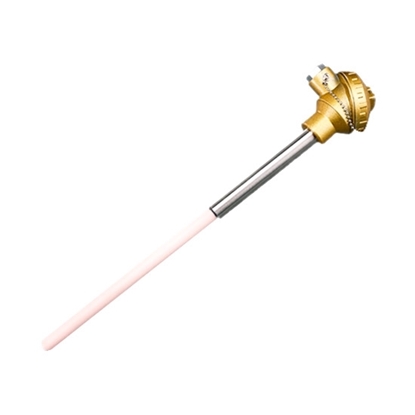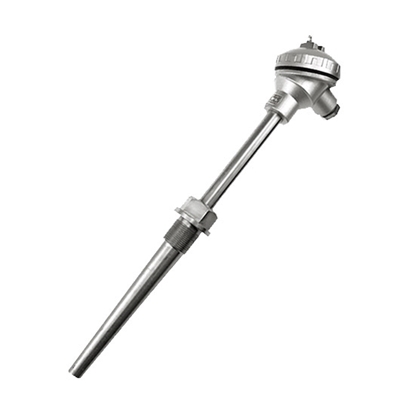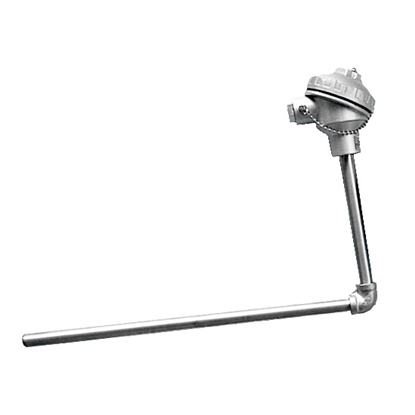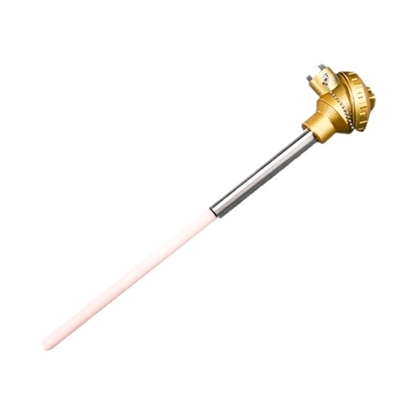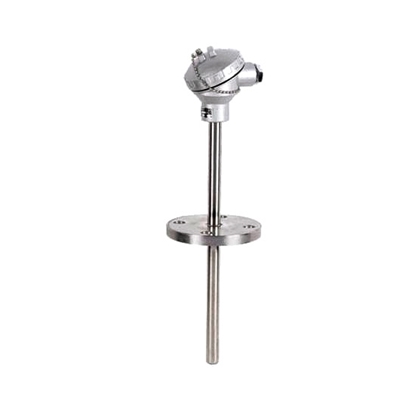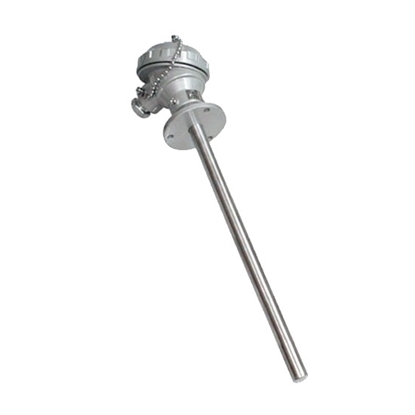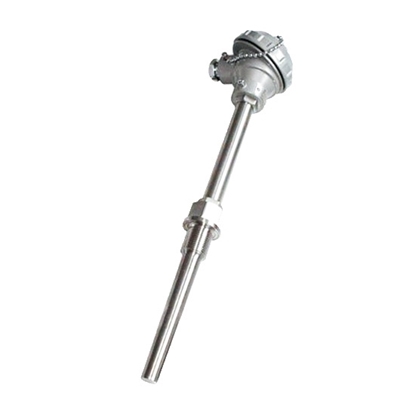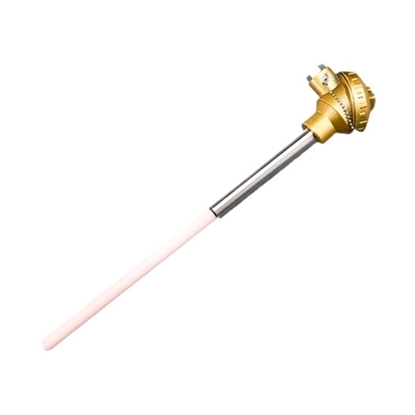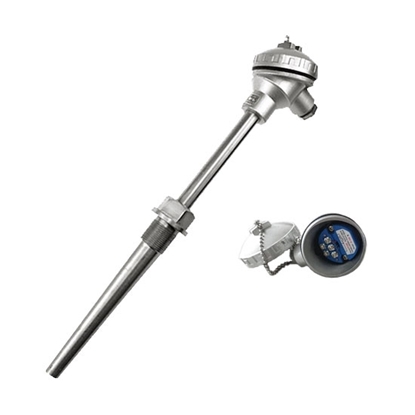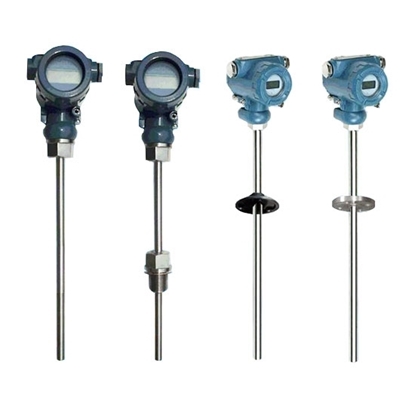Thermocouple
Thermocouple, K type, Sheath
Thermocouple, E type, Sheath
Thermocouple, J type, Sheath
Thermocouple, T type, Sheath
K type Thermocouple Probe, Sheath Diameter 1mm
Thermocouple, S type, Assembly
Thermocouple, K type, Assembly
Thermocouple, E type, Assembly
Thermocouple, B type, Assembly
Thermocouple, J type, Assembly
Thermocouple, T type, Assembly
Thermocouple, N type, Assembly
Thermocouple, R type, Assembly
K type Thermocouple with Transmitter
Digital Thermocouple with transmitter, K type
Indoor Temperature Sensor, Pipe Thermocouple, -50~100℃
A thermocouple is a widely used temperature sensor that operates on the principle of the Seebeck effect, which refers to the generation of an electric voltage when two dissimilar metals are joined at two different temperatures. The thermocouple consists of two conductors made from different materials, which are connected at one end (the measuring junction), while the other end (the reference junction) is kept at a known temperature. The voltage produced by the temperature difference between the two junctions can then be measured and used to determine the temperature of the measuring junction.
Working Principle of Thermocouple
The fundamental working principle of a thermocouple sensor relies on the Seebeck effect, discovered by Thomas Johann Seebeck in 1821. When two different conductors (usually metals) are joined at one end and subjected to a temperature difference, an electric potential (voltage) is generated. This voltage is proportional to the temperature difference between the two junctions. The key to the thermocouple’s functionality is that the voltage generated by this temperature difference can be measured, and through calibration, it can be related to the temperature of the junction.
The thermocouple operates based on the following steps:
- Hot junction: One end of the thermocouple is exposed to the temperature you want to measure. This is known as the "hot" or "measuring" junction.
- Cold junction: The other end of the thermocouple is kept at a known temperature, often referred to as the "cold" or "reference" junction. The temperature of this junction needs to be accurately controlled and accounted for.
- Voltage generation: Due to the temperature difference between the two junctions, a small voltage (called thermoelectric voltage) is produced. This voltage is unique to the material pair and the temperature difference between the two junctions.
- Temperature calculation: The voltage is then measured and converted into a temperature reading using a calibration curve specific to the thermocouple type.
Thermocouple Types
Thermocouples are classified into different types based on the materials used for the conductors. Each type has its own characteristics, temperature range, and suitability for specific applications. The most common types include:
- Type K (Nickel-Chromium/Nickel-Silicon) Thermocouple: Type K thermocouples are the most widely used due to their versatility, reliability, and broad range of applications. They are used in industrial, scientific, and laboratory environments for general temperature measurements.
- Type J (Iron/Copper-Nickel) Thermocouple: Type J is used in low to medium temperature ranges. It is suitable for use in oxidizing and reducing atmospheres but not in vacuum or inert atmospheres. It is often used in furnaces, ovens, and other industrial settings.
- Type T (Copper/Copper-Nickel) Thermocouple: Type T is ideal for cryogenic applications and low-temperature measurements. It offers high accuracy and stability in measuring temperatures as low as -200°C, making it suitable for laboratories and specialized industries like food and pharmaceuticals.
- Type E (Nickel-Chromium/Copper-Nickel) Thermocouple: Known for its high output and sensitivity, Type E thermocouples are used in applications requiring higher accuracy at moderate temperatures, such as in research laboratories, furnace monitoring, and scientific applications.
- Type N (Nickel-Chromium/Nickel-Silicon) Thermocouple: Type N thermocouples are used for high-temperature measurements and provide better stability and resistance to oxidation compared to Type K in extreme environments. They are ideal for use in harsh conditions such as high-heat furnaces and industrial applications requiring long-term stability.
- Type S (Platinum/Platinum-Rhodium) Thermocouple: Type S is a high-accuracy thermocouple primarily used in scientific research and high-temperature applications, including industrial furnaces, aerospace systems, and high-precision research settings.
- Type R (Platinum/Platinum-Rhodium) Thermocouple: Like Type S, Type R thermocouples are used in high-temperature applications such as steel production, furnace monitoring, and industrial processes that require precise temperature control.
- Type B (Platinum/Platinum-Rhodium) Thermocouple: Type B is primarily used for very high-temperature applications, such as molten metal measurements, and is also used in scientific laboratories where extreme temperatures are involved, like in research related to high-temperature processes.
Advantages and Limitations
| Advantages | Limitations |
| Low Cost: Compared to other temperature sensors, thermocouples are relatively inexpensive. | Lower Accuracy: While thermocouples excel in temperature range, their accuracy is generally lower than other types of sensors like RTDs. |
| Fast Response: Thermocouples can respond quickly to temperature changes, making them suitable for dynamic temperature measurements. | Cold Junction Compensation: The temperature of the cold junction (reference junction) must be accurately compensated, otherwise, measurement results can be affected. |
| High Temperature Resistance: Suitable for high-temperature measurements, some types (e.g., Type B) can withstand extremely high temperatures. | Non-linearity: Some thermocouple types exhibit non-linear behavior within certain temperature ranges, requiring calibration. |
Applications of Thermocouples
Thermocouple sensors are extensively used across many industries due to their wide temperature range, simple construction, and cost-effectiveness. Some of the key applications include:
- Industrial Temperature Measurement: Thermocouples are used in industries such as metal processing, oil and gas, and chemical manufacturing to measure and control temperatures in furnaces, reactors, and distillation columns.
- Automotive: Thermocouples are commonly used in engine temperature monitoring, exhaust gas temperature measurement, and in catalytic converters for emissions control.
- Aerospace: Thermocouples are used in aircraft and spacecraft to monitor engine temperatures, exhaust temperatures, and various other critical systems where precise temperature measurements are crucial for safety and performance.
- Scientific Research: Thermocouples are used in laboratories for temperature calibration, as they provide high accuracy and are relatively simple to use. They are ideal for experiments requiring precise temperature control and measurement.
- Consumer Electronics: In household appliances, thermocouples are used in temperature sensors for devices like refrigerators, ovens, and air conditioners, where temperature regulation is important.
- Cryogenics: Type T thermocouples, due to their low-temperature sensitivity, are commonly used in cryogenic applications where temperatures can go as low as -200°C, such as in the study of superconductivity or the storage of liquefied gases.

